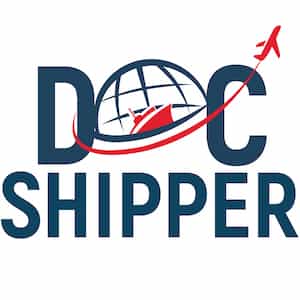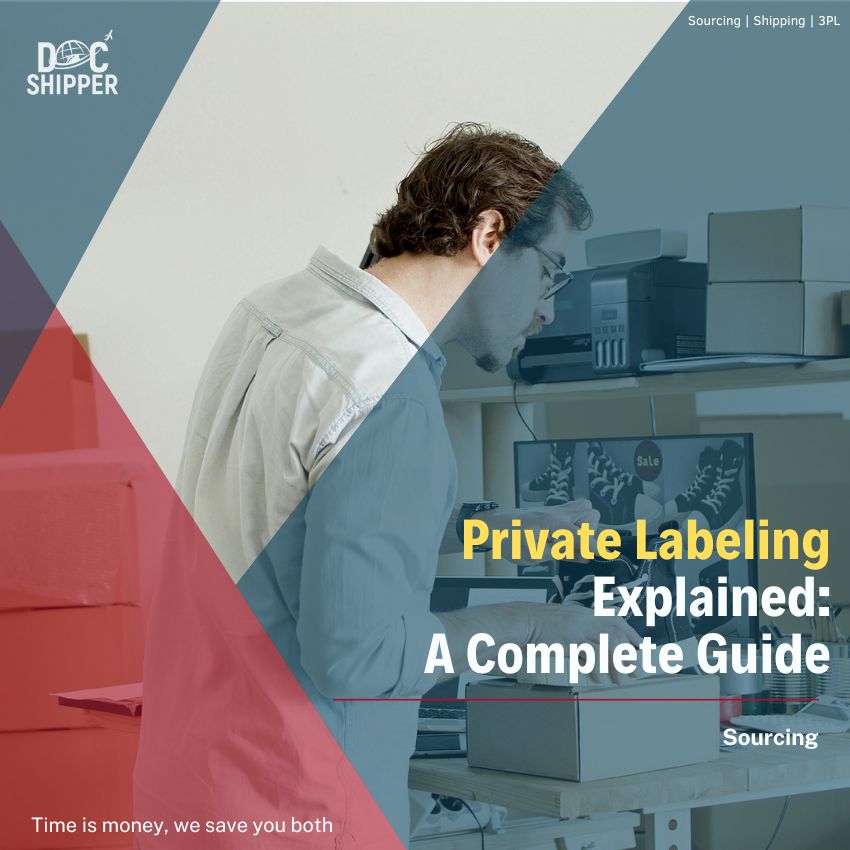Private labeling has emerged as a transformative strategy for businesses aiming to establish unique brand identities and gain a competitive edge in the market. By offering products manufactured by third parties under their own brand names, companies can control product specifications, packaging, and branding, leading to increased profit margins and customer loyalty. This comprehensive guide delves into the concept of private labeling, its benefits, challenges, and best practices, providing a detailed roadmap for businesses considering this approach.
What is Private Labeling?
Private labeling involves a retailer partnering with a manufacturer to produce goods that are then sold under the retailer's own brand.
The retailer specifies everything about the product, including its ingredients or components, packaging design, and branding elements.
Once produced, these products are delivered to the retailer for sale, giving the impression that the retailer is the original manufacturer. This strategy allows businesses to offer exclusive products without investing in manufacturing facilities.
Private Label vs. White Label vs. Generic Brands
Understanding the differences between private label, white label, and generic brands is key to choosing the right strategy for your business. Hence, let’s discover the meaning and specificities of each one of them:
- Private label products are tailored specifically for a retailer, with unique specifications, branding, and packaging. The retailer has full control over the product's development and presentation, ensuring it aligns with their brand identity and meets their customers' expectations.
- White label products are generic goods produced by manufacturers that multiple retailers can rebrand and sell as their own. Unlike private label products, white label items are not customized for individual retailers, resulting in identical products sold under different brand names.
- Generic brands are basic products without any branding, often packaged in simple packaging and sold at lower prices. They lack the brand identity and marketing efforts associated with private and white label products, appealing primarily to price-sensitive consumers.
While private and white label products involve rebranding by retailers, the key difference lies in customization. Private label products are uniquely developed for a specific retailer, offering exclusivity, whereas white label products are standardized and sold to multiple retailers. Generic brands, on the other hand, do not involve rebranding and are sold without any association to a particular retailer.
DocShipper info : Understanding these key distinctions is crucial for choosing the right business strategy. Private label offers full customization and exclusivity, white label provides rebranding opportunities, while generic brands focus on affordability. Need help deciding the best option for your business? Get in touch with our experts for tailored guidance!
Why Private Labeling is a Game-Changer
Private labeling has revolutionized the retail industry, offering businesses a unique opportunity to differentiate themselves and unlock new levels of profitability.
By creating exclusive products tailored to their brand, retailers can stand out in competitive markets while addressing specific consumer needs. Let’s explore the key benefits and challenges of private labeling.
Key Benefits of Private Labeling
Here are the key benefits of private labeling shipping supplies summarized in bullet points:
- Higher Profit Margins: By eliminating intermediaries and controlling production costs, retailers can achieve significantly higher profit margins on private label products.
- Complete Control Over Product Development: Retailers can tailor products to meet their target audience's preferences, including decisions on features, quality standards, packaging, and branding.
- Streamlined Production Process: Direct collaboration with manufacturers reduces lead times, allowing retailers to respond quickly to market trends and consumer demands.
- Customization of Pricing and Marketing: Retailers have the flexibility to adjust pricing strategies and marketing campaigns without being tied to national brand constraints.
- Enhanced Brand Recognition: Offering unique private label products helps retailers establish a distinct brand identity and build customer loyalty.
These benefits collectively empower retailers to enhance their competitive edge in the market.
Challenges of Private Labeling
- Competing with Established Brands: Entering a market dominated by well-known brands can be challenging. Retailers must invest in marketing and brand-building efforts to convince consumers of the quality and value of their private label products.
- Ensuring Quality and Supplier Reliability: Maintaining consistent product quality is crucial for brand reputation. Retailers need to establish strong relationships with reliable manufacturers and implement stringent quality control measures to ensure product standards are met.
- Building Brand Awareness: Without the recognition of established brands, private label products require significant marketing efforts to build brand awareness and consumer trust.
Types of Private Label Products
Private labeling offers endless possibilities across a wide range of industries, from everyday essentials to niche markets. Whether you’re targeting mass-market appeal or catering to specific consumer preferences, understanding the types of products you can private label is crucial for building a successful brand.
So let’s discover the different types of private label products :
Popular Categories for Private Labeling
- Food and Beverage: Private label offerings in the food and beverage sector include snacks, beverages, and packaged goods. Retailers can cater to specific dietary preferences or regional tastes, which provides unique products that resonate with their customer base.
- Beauty and Personal Care: Products such as skincare, haircare, and cosmetics are popular private label items. Retailers can develop exclusive beauty lines that highlight specific ingredients or benefits, which appeals to niche markets within the beauty industry.
- Health and Wellness: The growing focus on health has led to an increase in private label vitamins, supplements, and fitness products. Retailers can offer high-quality wellness products that meet consumer demand for health-focused solutions.
- Home and Lifestyle: Home goods, including decor, kitchenware, and textiles, are common private label products. Retailers can design products that align with current home trends, which provides customers with stylish and functional items.
Niche Opportunities in Private Labeling
With rising environmental consciousness, there's a growing market for sustainable private label products. Retailers can develop eco-friendly items, such as reusable household products or sustainably sourced goods, to attract environmentally conscious consumers.
Private labeling is not limited to budget-friendly products; retailers can also venture into luxury markets. By offering high-end private label items, businesses can cater to consumers seeking premium quality and exclusivity.
Logistics and Supply Chain Considerations for Private Labeling
Successfully launching and scaling a private label brand requires a well-organized logistics and supply chain strategy. From sourcing reliable manufacturers to navigating shipping and warehousing, every step plays a critical role in ensuring efficiency and cost-effectiveness.
1. Private Labeling role in the sourcing and manufacturing phase
When selecting a manufacturer, there are several key factors to consider.
Retailers should evaluate quality control processes, lead times, minimum order quantities MOQ, and the ability to accommodate product customization.
Retailers should also assess the manufacturer's compliance with industry regulations and certifications to meet market standards.
DocShipper Alert : Identifying trustworthy suppliers is critical for private label success. Retailers should conduct thorough research, assess potential suppliers' capabilities, and consider factors such as production capacity, compliance with industry standards, and financial stability. Our sourcing supply experts are here to guide you in this complex task–contact them here.
2. Private labeling role in the shipping and customs clearance phase
International shipping requires strategic planning, including logistics coordination, customs regulations, and compliance with import/export laws. Fortunately, with the support of our experts at DocShipper, businesses can navigate these processes smoothly.
To successfully clear customs, private label businesses must provide accurate and complete documentation, including:
- Commercial Invoice: Details of the goods being shipped, their value, and the transaction between buyer and seller.
- Packing List: Breakdown of the shipment's contents, weight, and dimensions.
- Bill of Lading or Airway Bill: Proof of shipment and receipt of goods by the carrier.
- Certificates of Origin: Documents proving where the product was manufactured, required by some countries.
- Import Licenses and Permits: Depending on the product category, some goods may require specific permits or compliance with safety standards.
Proper documentation minimizes delays and prevents unexpected customs fees, helping businesses maintain efficient supply chain operations.
3. Private labeling crossing the warehousing and distribution phase

- Inventory Management Systems: Use software to track stock levels and automate replenishment.
- Storage Optimization: Organize warehouse layouts to facilitate quick access and efficient picking processes.
- Temperature and Safety Controls: Ensuring specific storage conditions for perishable or sensitive products.
DocShipper Advice : Finding the right supplier is critical to private label success. With our sourcing expertise, we help you identify trustworthy manufacturers, negotiate competitive prices, and ensure top-tier quality for your products. Save time and minimize risks—let us handle the sourcing while you focus on growing your brand. Need help? Fill in our form to get started!
Private labeling across various channels
Private label brands can distribute their products through various channels, but keep in mind that choosing the right distribution strategy depends on your business goals, target audience, and operational capacity. The principals channels include:
- E-commerce Platforms: Sell directly to consumers via online marketplaces (Amazon, Shopify) or brand-owned websites.
- Retail Partnerships: Collaborate with brick-and-mortar stores or supermarket chains to expand market reach.
- Dropshipping Models: Use suppliers that handle fulfillment and shipping directly to customers, reducing inventory costs.
- Wholesale Distribution: Supply products in bulk to other businesses or retailers for resale.
Cost Management in Private Label Logistics

- Freight Charges: Costs associated with transporting goods via air, sea, or land.
- Duties and Taxes: Import tariffs and value-added tax (VAT) applicable to specific products and countries.
- Customs Brokerage Fees: Costs incurred for professional assistance in navigating customs procedures.
- Warehousing and Handling Costs: Storage fees, labor costs, and packaging expenses.
To optimize logistics costs, private label businesses can:
- Negotiate Bulk Shipping Rates: Working with freight carriers to secure volume-based discounts.
- Optimize Packaging: Reducing package weight and size to lower shipping fees.
- Leverage Regional Warehouses: Storing products closer to target markets to cut down on transportation expenses.
- Automate Supply Chain Processes: Using AI-driven analytics and inventory forecasting to prevent overstocking or understocking.
By effectively managing costs, private label businesses can enhance profitability and maintain a competitive edge in the market.
Docshipper Tip : Lower your logistics costs by negotiating bulk shipping rates, reducing package weight and size, and using AI-driven automation for inventory management. With DocShipper, access expert guidance, real-time tracking, and flexible warehousing. Don’t let logistics slow your growth!—fill the form to get started with DocShipper and unlock seamless supply chain management today!
Private Labeling in Different Industries
Private labeling operates across multiple industries, allowing businesses to develop exclusive products and strengthen their brand identity. In the following sections, we will explore the key sectors where private labeling thrives and how it benefits each one.
Private Labeling in Retail
Retail giants like Costco’s Kirkland and Amazon Basics have successfully leveraged private labeling to offer high-quality products at competitive prices while building brand loyalty. These success stories highlight how businesses can create exclusive product lines that cater to customer needs and generate higher margins.
Competing with established private label brands requires strong strategies. Businesses must focus on:
- Product Quality: Offer superior products that stand out in the market.
- Brand Identity: Create unique branding and marketing campaigns.
- Customer Experience: Provide excellent service and value-added benefits.
By partnering with DocShipper, you will optimize production and supply chain processes to ensure successful operations and competitive pricing.
Private Labeling in E-commerce
Combining dropshipping with private labeling allows businesses to enter the market with minimal upfront costs. This approach eliminates the need for large inventory investments while maintaining brand control. DocShipper’s dropshipping solutions provide a hassle-free way to manage order fulfillment and logistics.
Selling private label products on Amazon requires strategic planning, starting with keyword optimization to improve visibility and attract buyers. Enrolling in Amazon’s Brand Registry helps protect products and unlocks marketing tools like A+ Content and Sponsored Ads. Sellers must also choose between FBA for hassle-free fulfillment or FBM for more control over shipping. To scale successfully, businesses should analyze sales data, optimize listings, and leverage promotions to drive growth.
Private Labeling in the Beauty Industry
The beauty industry is a prime market for private labeling, with skincare and cosmetics brands increasingly opting for custom formulations and exclusive product lines. Trends such as organic ingredients, cruelty-free testing, and clean beauty continue to drive consumer preferences. By leveraging DocShipper’s sourcing expertise, businesses can connect with trusted private label manufacturers that align with their brand values.
For instance, the brand Fenty Beauty, revolutionized the cosmetics industry by offering an inclusive range of foundation shades that catered to all skin tones. This success story underscores the importance of market research, product differentiation, and strong branding in private label cosmetics. Private label brands looking to make an impact can learn from this model by offering niche products that address gaps in the market.
Legal and Regulatory Considerations related to private labeling
Legal and regulatory landscape is an essential consideration for the success of any private label business. From protecting intellectual property to ensuring compliance with industry standards, businesses must take proactive steps to avoid legal pitfalls. In the following sections, we’ll explore key considerations to safeguard your brand and operate within regulatory frameworks.
Protecting Your Brand
Securing trademarks and intellectual property rights is crucial for protecting private label brands from counterfeiting and brand infringement. Businesses must register their brand name, logo, and unique product formulations to help establish legal ownership and prevent competitors from duplicating their products.
Legal disputes can arise from non-compliance with regulations, intellectual property infringement, or contractual disagreements with suppliers. To mitigate risks, businesses must conduct due diligence on manufacturers, draft comprehensive contracts, and ensure regulatory adherence. If you don’t know about how to navigate these complexities, reduce risks and ensure a smooth private label operation. Secure your business today—contact DocShipper for expert legal support.
Compliance and Safety Standards
Different industries require compliance with specific safety and quality certifications, such as FDA approval for cosmetics, GMP for supplements, or Fair Trade certification for ethical sourcing. Meeting these standards enhances brand credibility and ensures market acceptance.
In order to operate in multiple countries, knowing how to navigate import/export laws is essential for private label businesses. Because each region has different tariff classifications, labeling requirements, and restricted substances.
Future Trends in Private Labeling
The private labeling landscape is evolving rapidly, driven by technological advancements, changing consumer preferences, and sustainability concerns. As brands seek to stay competitive, they must adapt to emerging trends that shape the industry’s future.
1. The Rise of Direct-to-Consumer (DTC) Private Labels
More brands are shifting towards a Direct-to-Consumer (DTC) model, bypassing traditional retail channels to engage directly with customers. This approach allows private label brands to maintain higher profit margins, control pricing, and build strong customer relationships.
2. Technology and Innovation
Artificial intelligence (AI) and data analytics play a growing role in predicting market trends and optimizing private label product development. Brands leveraging AI can analyze consumer preferences, forecast demand, and streamline production.
Blockchain technology enhances transparency in the supply chain, allowing brands to verify product authenticity and track shipments in real time. Private label businesses benefit from increased trust and reduced risk of counterfeiting.
3.Sustainability and Ethical Private Labeling
Sustainability is a key consideration for modern consumers, with many preferring eco-friendly packaging, ethically sourced materials, and carbon-neutral shipping. Private label brands can attract environmentally conscious shoppers by implementing green initiatives.
Long-term success in private labeling requires a commitment to sustainability. Brands should focus on ethical sourcing, responsible manufacturing, and transparent supply chain practices to establish credibility and loyalty.
Case Studies and Success Stories related to private Labelling
Studying real-world examples of private label brands provides valuable insights into what drives success and what leads to failure. From industry leaders to cautionary tales, these case studies highlight essential strategies for building a strong and sustainable private label business.
Top Private Label Brands to Watch
- Trader Joe’s:
Trade joe is a leading example of a successful private label strategy, offering high-quality, exclusive products at competitive prices. By maintaining strict control over sourcing and branding, Trader Joe’s has built strong customer loyalty.
- Allbirds:
Allbirds is a brand that disrupted the footwear industry with its eco-friendly, private label brand focused on sustainability and comfort. By leveraging high-quality materials and direct-to-consumer sales, Allbirds has also gained a loyal following.
Lessons from Failed Private Label Ventures
Many private label brands fail due to poor product quality, inadequate market research, and supply chain inefficiencies. Common mistakes include:
- Choosing unreliable manufacturers: it leads to inconsistent product quality.
- Lack of differentiation: it results in weak brand positioning.
- Ignoring compliance regulations: leading to legal challenges and product recalls.
DocShipper Advice : Avoid these mistakes by partnering with us. Our comprehensive private label support includes supplier verification, competitive market analysis, and compliance management, ensuring your brand’s success. Don’t take unnecessary risks—contact DocShipper today and launch your private label brand with confidence!
Conclusion
Private labeling is a powerful way to build a unique brand and maximize profits, but success depends on smart sourcing, logistics, and compliance. DocShipper simplifies the entire process, from manufacturing to global distribution, ensuring efficiency and cost savings.
Avoid costly mistakes and streamline your operations with DocShipper’s expert support.
FAQ | Private Labeling Explained: A Complete Guide
Private label products are exclusive to a single retailer or brand, designed with custom formulations, packaging, and branding. White label products, on the other hand, are generic items that multiple retailers can sell under their own branding, with little to no customization. Private labeling offers more control over product differentiation, while white labeling provides a faster, lower-cost market entry.
The cost of starting a private label business varies widely depending on the industry, product complexity, and order volume. Initial investments can range from $1,000 to $10,000 for smaller ventures, while premium brands may require $50,000 or more. Key expenses include product development, manufacturing, branding, packaging, shipping, and marketing.
Yes, private labeling can be done internationally, but it requires careful planning. Importers must consider supplier reliability, manufacturing regulations, customs clearance, and shipping logistics. Partnering with experienced third-party logistics (3PL) providers ensures smooth operations and compliance with international trade laws.
Finding trustworthy manufacturers involves thorough research and vetting. Key steps include:
Several industries thrive in private labeling, including:
What is the difference between private label and white label?
How much does it cost to start a private label business?
Can I private label products internationally?
How do I find reliable private label manufacturers?
What are the best industries for private labeling?
DocShipper info: Do you like our article today? For your business interest, you may like the following useful articles :
DocShipper Advise : We help you with the entire sourcing process so don't hesitate to contact us if you have any questions!
- Having trouble finding the appropriate product? Enjoy our sourcing services, we directly find the right suppliers for you!
- You don't trust your supplier? Ask our experts to do quality control to guarantee the condition of your goods!
- Do you need help with the logistics? Our international freight department supports you with door to door services!
- You don't want to handle distribution? Our 3PL department will handle the storage, order fulfillment, and last-mile delivery!
DocShipper Sourcing | Procurement - Quality control - Logistics
Alibaba, Dhgate, made-in-china... Many know of websites to get supplies in Asia, but how many have come across a scam ?! It is very risky to pay an Asian supplier halfway around the world based only on promises! DocShipper offers you complete procurement services integrating logistics needs: purchasing, quality control, customization, licensing, transport...
Communication is important, which is why we strive to discuss in the most suitable way for you!
















